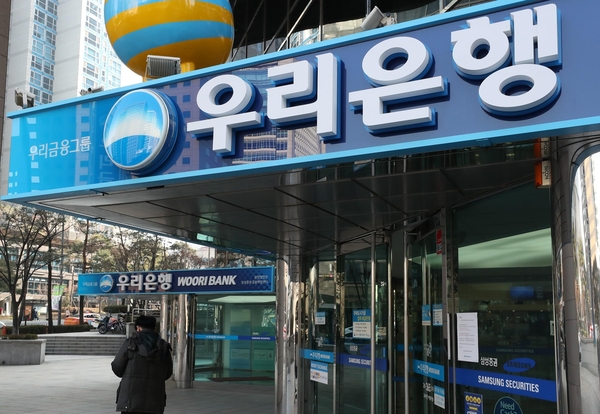Input 2021.03.22 17:10 | Revision 2021.03.22 17:17
According to the banking sector on the 22nd, Woori Bank decided to lower the preferential interest rate applied to the’Woori Jeonse Loan’ (Housing Finance Corporation and Housing and Urban Guarantee Corporation guarantee loans) from the previous 25th to 0.2% per year. This applies from the time of application for approval of new, extended periods, renewed agreements, and condition changes (including financial takeover) after the effective date.

This movement is seen as one of the management measures in line with the rising trend of housing-related loans. According to the Bank of Korea, the balance of mortgage loans out of banking household loans at the end of February was 732.3 trillion won, an increase of 6.4 trillion won from the previous year.
In particular, the demand for jeonse loans is increasing rapidly. As of the end of last February, the balance of jeonse loans of the five major commercial banks (KB Kookmin, Shinhan, Hana, NH Nonghyup, and Woori Bank) increased by 3.4% from the end of last year to 108.766.7 billion won. An analysis suggests that the increase in jeonse loans may be attributed to the three lease laws in effect from the second half of last year. With the introduction of the contract renewal request system and the cheonsei limit system, the jeonse price soared due to the shortage of jeonse items. This naturally led to an increase in the balance of out-of-generation banknotes.
Commercial banks, including Woori Bank, are working to manage loan-to-departures with the lead by reducing preferential interest rates. If the preferential interest rate is lowered, the interest burden on the person receiving the loan increases, resulting in the same effect as an interest rate increase. Earlier, on the 5th, Shinhan Bank reduced the preferential interest rate for mortgage loans and real estate loans by 0.2 percentage points (P). The preferential interest rate for some jeonse loans (housing finance corporation and housing city guarantee corporation guarantee loan) was also lowered by 0.2%p.
On the 8th, the Nonghyup Bank adjusted preferential interest rates for some housing transactions-related loan products. The annual preferential interest rate provision of 0.2%, which was applied to the first new customers of household mortgage products, was deleted, and the preferential interest rate applied when a short-term variable rate was selected was also reduced from 0.2% per year to 0.1% per year.
In the banking sector, there is a prospect that this movement will gradually spread. This is because the 1-year and 6-month bank bonds, which affect the interest rates of commercial banks, rose 2.4bp and 5.6bp, respectively, compared to the end of last month. Interest rates, which have been declining since this year, have rebounded this month. It is analyzed that the rise in the financing rate will inevitably affect the rise in the loan rate.
